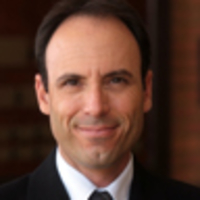Opponents say San Francisco’s proposed circumcision ban is a violation of the First Amendment and will get thrown out by the courts, but Adam Winkler argues that the ban may stand up in court thanks to Antonin Scalia and other conservatives.
Last week, election officials in San Francisco confirmed that a measure to prohibit male circumcision will appear on the city’s November ballot. Given the prevalence of circumcision among Jews and Muslims, commentators have already dismissed the measure as an obvious violation of the First Amendment, which guarantees the “free exercise” of religion. Certainly the U.S. Supreme Court, with five justices appointed by Republican presidents supported by the religious right, would strike down this law in a rapturous minute.

Not so fast. In fact, there’s a very good chance the circumcision ban, if passed, would be upheld. And you can place much of the blame for this remarkable infringement of religious liberty on those Republican-appointed justices.
San Francisco’s proposed ban would make it “unlawful to circumcise, excise, cut, or mutilate the whole or any part of the foreskin, testicles, or penis of another person who has not attained the age of 18,” with fines up to $1,000. While the law allows circumcision for medical necessity, it explicitly declares that religious beliefs and practices cannot be the basis for an exception. Add Northern California mohels to the ranks of the unemployed.
How can it be that a practice so central to the religious beliefs of so many Americans be consistent with the First Amendment? Didn’t our forefathers escape to these shores to protect religious practices from being prohibited by the government? Didn’t James Madison and his colleagues at the Constitutional Convention specifically aim to protect the ability of religious believers to practice their sacred, divinely inspired rituals? Of course.
Too bad the Supreme Court doesn’t see it that way—anymore. Through much of the 20th century, the court held that religious practices deserved special constitutional protection. Only the most compelling reasons could justify intruding on religious rituals. After all, the Bill of Rights has two provisions guaranteeing religious liberty: one that bans government from establishing an official religion and another that prevents government from prohibiting people from exercising their religion freely.
But if believers in the Bay Area have to start wandering the back alleys of The Castro in search of an illegal circumcision, you can thank Justice Scalia and Republican presidents like Ronald Reagan who are so often celebrated for their support of religion.
In recent years, however, the Supreme Court has seriously eroded the constitutional protections for religion. Although it’s usually the liberal Warren Court that’s blamed for pushing religion out of public life, it was none other than conservative darling Antonin Scalia who wrote a landmark opinion that effectively gutted the free exercise clause. In a case involving a person who used peyote, a controlled substance, as part of a Native American religious ritual, the Supreme Court held that people have to obey laws that apply generally to all citizens. So long as a law is not designed to target only religious adherents, it is constitutional.
Scalia’s opinion was joined by fellow conservative Reagan appointees Anthony Kennedy and Chief Justice William Rehnquist. It was three of the court’s most liberal members at the time who dissented, arguing for greater protection for religious practices.
It’s hard to argue that San Francisco’s proposed ban aims to hurt only religious believers. Approximately 80 percent of American men are circumcised—far more than would be if only people motivated by religious beliefs chose the procedure. Most Americans circumcise their sons for perceived health reasons. While the law would obviously harm the devout by preventing them from undertaking a ritual required by their religion, so did the ban on peyote. As long as the ban applies equally to everyone and the purpose of the law wasn’t to target only religious believers, it should survive under the Supreme Court’s logic.
Opponents of the ban might argue that the circumcision ban is a special case because it also infringes on the right of parents to control the upbringing of their children. Or perhaps they’ll count on the Supreme Court to treat differently a law that burdens “mainstream” religions like Judaism. Certainly the justices have relied before on equally suspect distinctions.
But if believers in the Bay Area have to start wandering the back alleys of The Castro in search of an illegal circumcision, you can thank Justice Scalia and Republican presidents like Ronald Reagan who are so often celebrated for their support of religion.
Adam Winkler is a constitutional law professor at UCLA.






